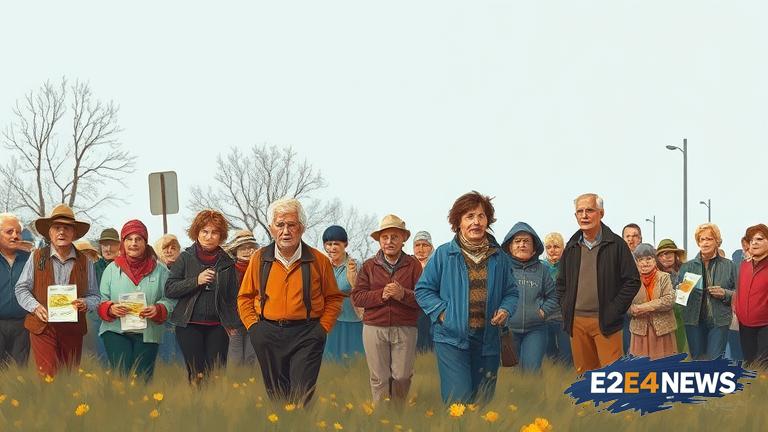A growing number of seniors in Missouri and Kansas are voicing their concerns over the potential cuts to Medicaid and the Supplemental Nutrition Assistance Program (SNAP). These programs are crucial for low-income individuals, including seniors, who rely on them for healthcare and food assistance. The proposed cuts have sparked widespread worry among seniors, who fear that they will be disproportionately affected. Many seniors in these states are already struggling to make ends meet, and the loss of these benefits could have devastating consequences. Medicaid provides essential healthcare services, including doctor visits, hospital stays, and prescription medication, while SNAP helps seniors purchase food and other necessities. Without these programs, many seniors would be forced to choose between paying for healthcare or food, leading to a significant decline in their overall well-being. The cuts could also lead to increased hospitalization rates, as seniors may be unable to afford necessary medical care. Furthermore, the loss of SNAP benefits could result in increased food insecurity, leading to malnutrition and related health problems. Seniors in rural areas may be particularly vulnerable, as they often have limited access to healthcare services and other resources. The proposed cuts have also raised concerns among healthcare providers, who fear that they will be unable to provide adequate care to their patients. Many providers rely on Medicaid reimbursement to operate, and a reduction in funding could lead to clinic closures and staff layoffs. The impact of the cuts could also be felt by local economies, as seniors who receive Medicaid and SNAP benefits often spend their money locally, supporting small businesses and contributing to the overall economic vitality of their communities. In addition to the economic concerns, the proposed cuts have also sparked worries about the social isolation of seniors. Many seniors rely on SNAP benefits to purchase food, which they often share with family and friends, helping to combat loneliness and isolation. The loss of these benefits could lead to increased social isolation, which is a major risk factor for depression, anxiety, and other mental health problems. As the debate over Medicaid and SNAP cuts continues, seniors in Missouri and Kansas are urging lawmakers to consider the potential consequences of their actions. They argue that these programs are essential for their health, well-being, and quality of life, and that cuts could have far-reaching and devastating effects. The seniors are calling on lawmakers to explore alternative solutions, such as increasing funding for these programs or implementing cost-saving measures that do not involve cutting benefits. They also argue that the proposed cuts are short-sighted, as they could ultimately lead to increased healthcare costs and other expenses in the long run. As the situation continues to unfold, seniors in Missouri and Kansas remain anxious about their future, fearing that they will be forced to bear the brunt of the cuts. They are hoping that lawmakers will listen to their concerns and work to find solutions that prioritize their health, well-being, and dignity. The proposed cuts have also sparked a wider debate about the role of government in supporting vulnerable populations, including seniors. Many argue that it is the responsibility of government to ensure that all citizens have access to basic necessities like healthcare and food, and that cuts to these programs are a violation of this responsibility. Others argue that the government cannot afford to continue funding these programs at current levels, and that cuts are necessary to ensure the long-term sustainability of the programs. As the debate continues, one thing is clear: the proposed cuts to Medicaid and SNAP have the potential to have a profound impact on the lives of seniors in Missouri and Kansas, and it is essential that lawmakers carefully consider the potential consequences of their actions.





